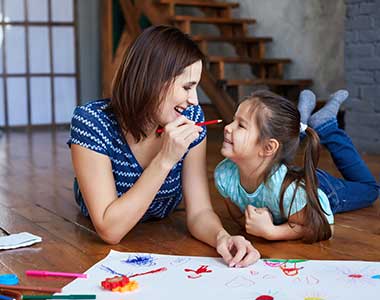Beneficial and Fun Group game ideas for our children

Group games are more than just fun and exciting activities.
They are an excellent chance for our children to develop their social personality and their ability to build relationships and maintain them, in addition to learning important life skills such as cooperation and creative thinking.
Here are some great ideas for children’s group games!
Rock Paper Scissors
This game is considered one of the traditional ones that require children to be fast and focused. Kids compete to draw the shape of a scissor (index and middle finger open while the rest are folded), a rock (fist tightly closed) and a paper (fingers stretched and firm). The winner is the one who chooses the strongest shape, where the rock beats the scissor, the scissor beats the paper, and the paper beats the rock.
Group Jump Rope
This is one of the simplest and most beneficial group activities, as it helps children to move the muscles of their legs, stomach and waist, in addition to developing the team spirit and love of cooperation.
In this game, two adults hold the ends of a long rope and swing it. Children have to stand side by side in the middle and try to jump over it together and at the same time. And if they don’t succeed at first, it’s okay if they get another shot at it!
The Human Knot
The “Human Knot” game can teach our children the skills of team work and finding solutions to problems.
To play it, kids must form a closed circle and then extend their arms and hands to the center and hold on to each other. After entwining together, they have to break themselves free without talking.
Hide and Seek
This fun game helps in developing the children’s ability to communicate and trust each other. In it, kids split into groups, and each group chooses one person to blindfold and guide his steps towards a certain object. The winner is the group that reaches the object first.
Let’s try these fun and beneficial games with our kids and their friends, because children between the ages of 5 and 8 years old do not understand the “group” concept with words and theories, but rather through games!













 Parenting Articles
Parenting Articles

